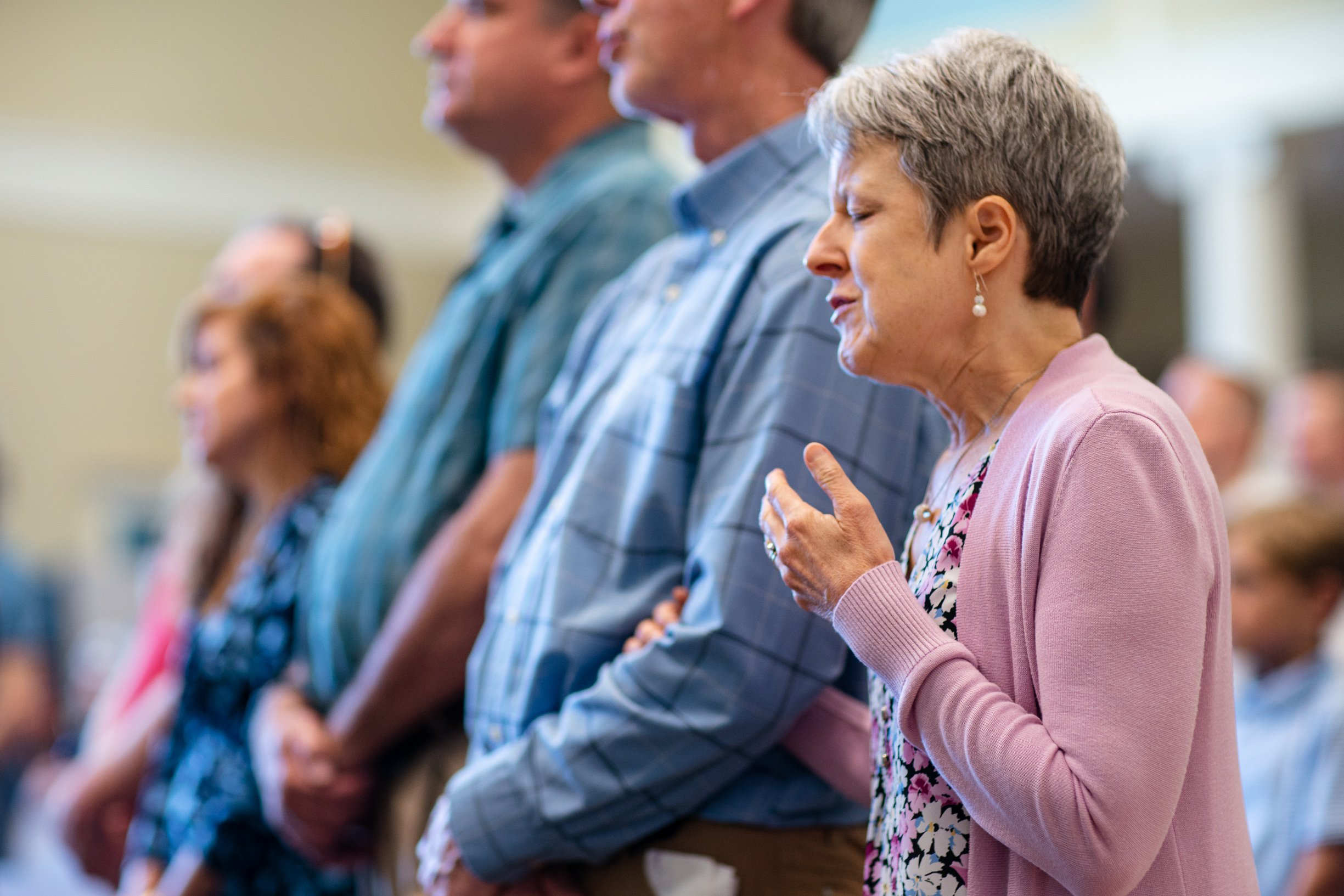
Sunday Gatherings
Gathered worship is at the core of Christian identity. This weekly rhythm of singing, praying, reading, and eating shapes us into the kind of people who represent God’s kingdom in the world.
We gather for worship at 10:00am on the campus of Socrates Academy, located at 3909 Weddington Road, Matthews, NC 28104.
Socrates Academy has a campus with many different buildings and parking lot entrances. If you aren’t sure where to go when you arrive, these maps might help!
Worship FAQs
What should I expect?
Our worship gatherings last 75-80 minutes and include a variety of elements. Singing, praying, readings, communion, and preaching are part of every service. While we encourage congregational participation in most parts of the service, feel free to participate as you are comfortable. We won’t call attention to you or embarrass you.
What should I wear when I come to your church?
While we take God, worship, and our liturgy very seriously, we don’t take ourselves very seriously. Wear whatever is comfortable for you. Some of us dress casually and others for the office.
What if I’m new?
We have first-time visitors almost every week, so you won’t feel awkward or put on the spot the first time you join us! If you're new, we encourage you to come a few minutes early and meet a few people. (Of course, you can also slip in the back quietly if you prefer!) You can also contact us here before your visit.
What about my kids?
We see kids as an essential part of our church family and want them to participate in the life of the church early and often! Even at a young age, children are shaped by the regular practices that they participate in. While age-appropriate learning is an important component of training children, we want children to be exposed to and engaged in the regular worship of the church.
See our Redeemer Kids page for more.
Can I come if I’m not a Christian?
Yes, absolutely. In fact, Redeemer’s goal is to extend the hospitality of God to those who are not part of a community of faith. If you don’t believe in Christianity, are burnt out on religion, or have been hurt by the church in the past, we hope to be a place of refuge for you.
Our Liturgy
At Redeemer we practice a liturgy that is rooted in the historical practice of the Christian Church. Liturgy simply means “the work of the people” and refers to the way that individual components of a worship service are arranged.
The service is shaped into four sections; Gathering, Word, Table, and Sending. These sections reflect the shape of the gospel itself, which means that each service is a rehearsal of the redemptive story that God is working in the world. The way we worship shapes what we believe and how we live, so we are very intentional about how we structure our worship services.
Gather
This section includes a call to worship, songs of praise, confession of sin, assurance of pardon, and the passing of the peace.
Word
In this part of the service we read God’s word, preach God’s word, and respond with an affirmation of faith, singing, and prayer.
Table
At the center of Christian worship is the practice of the Lord’s Supper. For us, this is a weekly rhythm where we remember and proclaim Jesus’ life, death, and resurrection.
Sending
Worship doesn’t end when the service is over. Instead, we scatter across our region to bear witness to the gospel in the world. This section includes a benediction, doxology, and final charge.
Gospel-Centered Worship
Liturgical.
Liturgical is a theological way of saying that our services are carefully ordered with a variety of elements. While this is may feel new to many American Christians, it is rooted in ancient worship practices and the historic traditions of the Christian Church.
Sacramental.
The world appears to many modern people to be a closed system, governed only by the laws of science and math. The biblical view, on the other hand, is that the world is an enchanted place, where God himself is actively involved in every part. To be sacramental is to embrace the mystery of faith in the God who became man for us.
Incarnational.
One of the dark sides of the amazing pace of technology in our world is the a rapidly diminishing value that many people place on physical presence. By practicing worship in a way that requires physical presence, we proclaim our belief that God created men and women as embodied souls.


